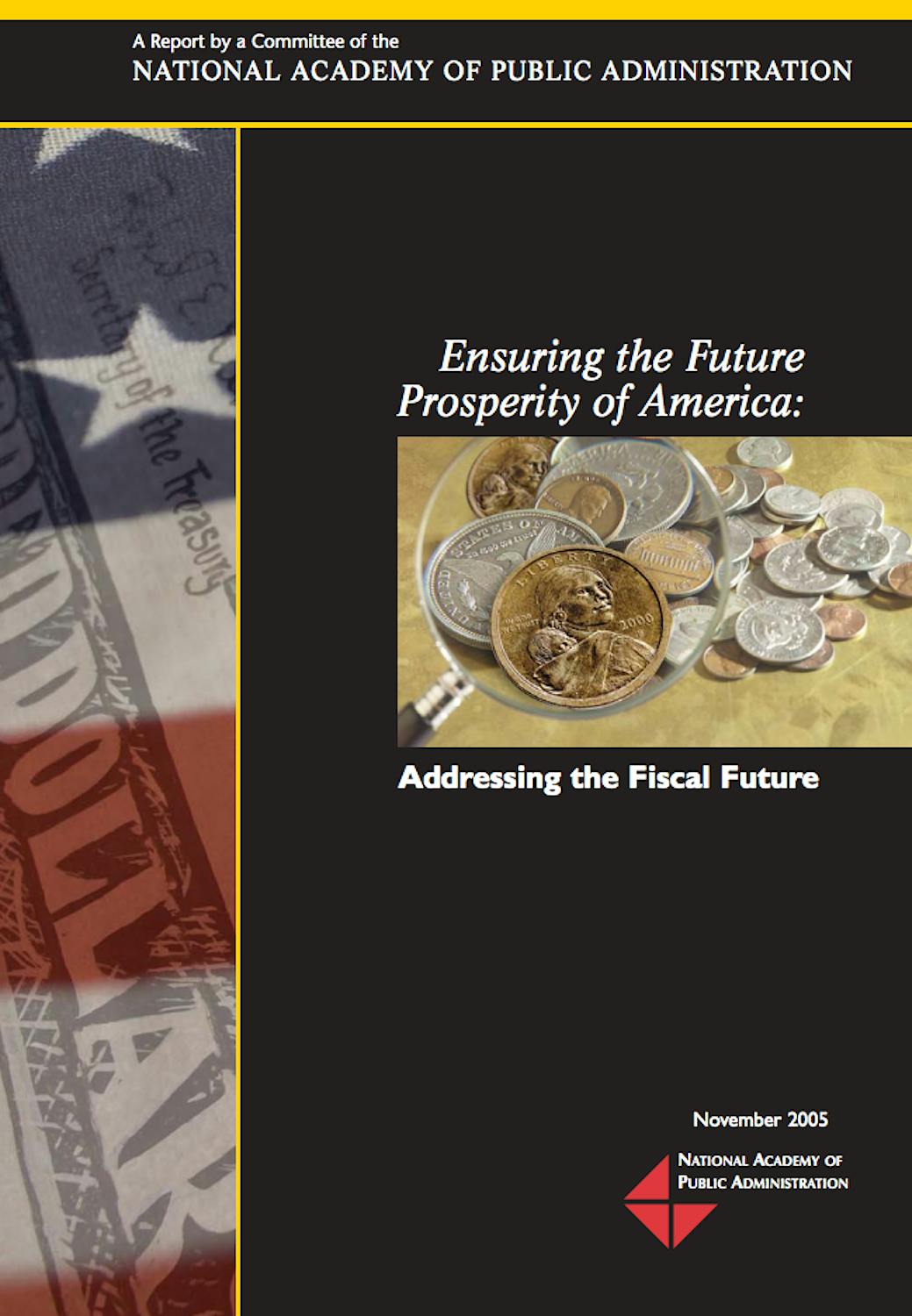
Ensuring the Future Prosperity of America: Addressing the Fiscal Future
For a period of 18 months, an Academy committee examined one of the most critical Big Ideas: the short- and long-term fiscal future of the United States. Its work has culminated in this report, Ensuring the Future Prosperity of America: Addressing the Fiscal Future, which lays out findings and recommendations designed to contribute to the dialogue and debate surrounding this important issue.
Click the button below to view the View Study Report.
View ReportKey Findings
The committee calls on policy makers, administrators and the public to recognize that today’s decisions can change the fiscal future, for better or worse. Setting priorities and making difficult choices can pay off in the years to come and strengthen the ability of governments at every level to serve the public interest.
Recommendations
Work is needed in three broad areas to incorporate the long-term outlook into the budget process:
- Public education, awareness and engagement. The public needs to (1) understand better how current policies and proposed alternatives will affect younger generations, and (2) become more engaged in the establishment of principles, setting goals, ranking priorities and weighing alternatives. A continuation of current policies will consume future public resources and result in levels of deficits and debt that will harm future standards of living. Without greater popular support for adequate levels of taxation and benefit changes, elected officials will be reluctant to set fiscal goals and make the tough decisions required to achieve them.
- More effective communication, measurement, and disclosure. New ways to present information about complex issues, options and consequences and make them accessible to general audiences are required. More effective presentation of fiscal trends and economic consequences could help motivate policy makers by making risks and rewards much clearer to the public. Better ways of measuring potential impacts of proposed policies over the long term and incorporating those assessments into annual budget deliberations could help disclose adverse long-term outcomes. Budget accounting concepts may also need to be revised or updated to improve the budget’s transparency and comprehensiveness and to discourage gimmickry.
- Budget enforcement and enhanced fiscal discipline. Workable and effective approaches should be developed to put the budget on a path to structural balance and fiscal sustainability instead of continuing on the donothing path of bigger deficits and deeper debt. The statutory pay-as-yougo provisions (which expired in 2002) were designed to keep deficits from worsening by requiring offsets for deficit-increasing measures. Now even that objective, while better than nothing, is inadequate. New measures should reflect agreed-upon benchmarks and set a higher standard that works towards closing gaps that exist under current law.
